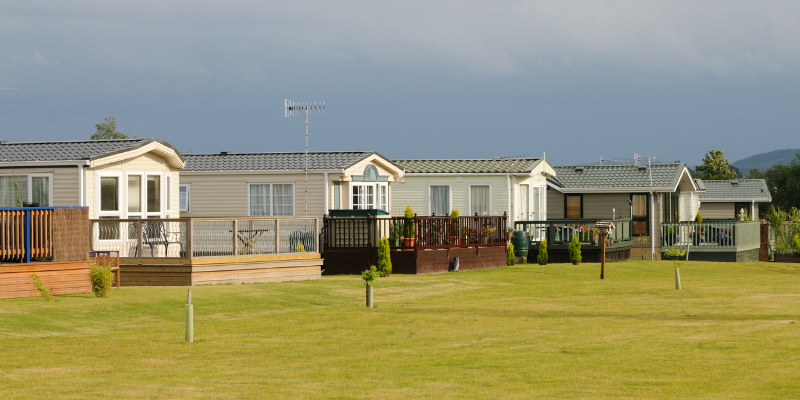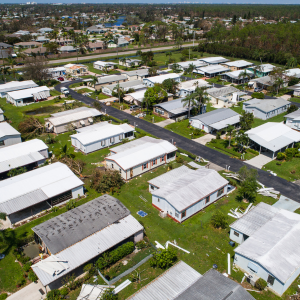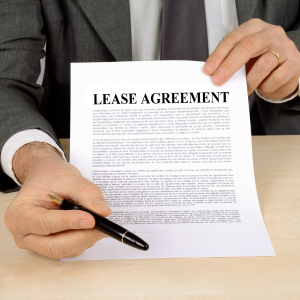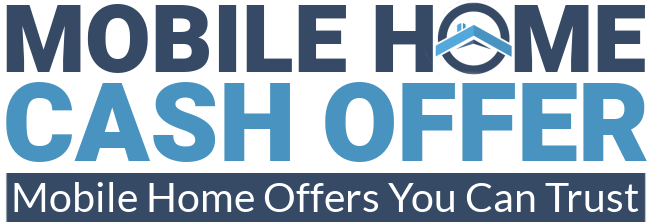
Understanding Mobile Home Ownership in Parks: Key Legal Considerations
Comprehending mobile home ownership in parks is a distinct form of real estate that involves entangling within a unique legal framework. The mobile home owner usually owns the structure but leases the ground underneath it in a fictitious legal proprietary relationship.
Domiciliary mobile car travelers should be aware of the state and municipal policies regarding manufactured housing communities, because these laws affect their privileges and obligations. Top priorities are comprehension of contracts, eviction processes, controlled rents, and park policies.
Lease agreements often outline specific terms regarding maintenance responsibilities, rent increases, and use of shared facilities. Evicting a mobile home tenant is quite distinct from the standard procedure of vacating a residential tenant due to the need for extra justification per the law in the form of notice periods.
These measures will safeguard the mobile home investment and offer protection from the unlawful expansion of visionary laws regarding mobile home parks. Mobile Home Cash Offer can help guide you through the process and protect your interests.
Can a Mobile Home Park Take Your Mobile Home?
Consider consulting a lawyer regarding the steps to take if your mobile home is seized because you reside in a mobile home park. Laws relating to the running of the mobile park set limits on what the owner can do to claim ownership over the property.
While legally possessing a mobile home, taking a house from a mobile home park is rare. Failure to pay lot rent, breaching a lease contract, breaking park regulations, or other specific cases leave room for this possibility. As with any eviction process, the mobile home park must follow all legal eviction protocols. This means the park has to, by law, notify you of the eviction and give you the time stipulated in the lease agreement before proceeding with the eviction.
Knowing the terms of your lease agreement and staying informed about state-specific landlord-tenant laws can protect you from unlawful seizure. If you’re facing potential eviction or believe your rights are being violated, seeking legal advice is essential, or you can sell your mobile home for cash in North Carolina and any state throughout the country to ease your situation.
Understanding these aspects will help ensure you retain ownership of your mobile home while residing in a mobile home park.
Common Reasons for Eviction From a Mobile Home Community

Understanding the common reasons for eviction in mobile home communities is crucial to protecting residents’ rights. One prevalent cause of eviction is the failure to pay rent or other fees on time, which can lead to legal actions by the mobile home park management.
Violating community rules and regulations is another significant factor that can result in eviction; these rules often cover aspects such as lot maintenance, noise restrictions, and pet policies. Additionally, engaging in illegal activities within the premises can prompt immediate eviction proceedings.
Some parks also have strict guidelines regarding the condition and appearance of homes; failing to comply with maintenance standards might lead to eviction notices. Unauthorized alterations to your mobile home or subleasing without permission are further grounds for potential eviction.
Understanding these common causes helps residents navigate their rights and responsibilities within mobile home parks, ensuring they maintain good standing in their community while avoiding disputes that could jeopardize their residency status. In some cases, residents may also need a lawyer to sell their mobile home, especially when legal issues or park regulations become complex.
Rights and Responsibilities of Mobile Home Park Residents
Residents of mobile home parks must be well-versed in their rights and responsibilities to navigate the complexities of park living effectively. Understanding the legal framework governing these communities is crucial, as it ensures that residents can protect their homes from unlawful seizure and assert their rights when necessary.
Key rights include the right to peaceful enjoyment of one’s property, protection against arbitrary eviction, and the right to receive proper notice before any changes to rental agreements or park rules. Responsibilities often encompass timely payment of rent, adherence to community guidelines, and maintaining the upkeep of one’s property.
Familiarity with state-specific laws is essential since regulations can vary significantly between jurisdictions. By comprehending both their rights and obligations, mobile home park residents can foster a harmonious living environment while safeguarding their homes from any potential legal actions by park management that could threaten their residency.
Financial Obligations of Living in a Mobile Home Park
Living in a mobile home park involves various financial obligations that residents must be aware of to safeguard their rights. When leasing a lot, individuals are typically required to pay monthly lot rent, which can include charges for utilities like water, sewage, and trash removal.
Residents should thoroughly review their lease agreements to understand all fees associated with living in the park. In addition to rent, some parks may impose additional charges for services such as landscaping or maintenance of common areas.
Understanding these expenses is essential because failure to meet financial obligations can lead to disputes or eviction. Mobile home owners should also be aware of any rules regarding the sale or transfer of their homes within the park, as some parks might require approval from management.
Familiarity with state laws governing mobile home parks is essential since regulations can vary widely and impact what fees are permissible and how they can be enforced. Being informed about all financial requirements helps prevent unexpected costs and ensures that residents can fully enjoy their living environment without legal issues related to unpaid dues or unauthorized charges.
Steps to Take If a Mobile Home Park Threatens Your Property
Steps to follow if a mobile home park threatens your property:
- Review Your Lease and Notices
– Carefully read your lease agreement and any formal notices from park management to understand the specific claims or actions being taken. - Understand Local and State Laws
– Research the laws that govern mobile home parks in your state and locality. These laws can vary widely and affect your rights. - Consult a Qualified Attorney
– Contact an attorney who specializes in landlord-tenant or mobile home law. They can provide tailored legal advice and evaluate your situation. - Document All Communication
– Keep a detailed record of all correspondence with the park management, including letters, emails, and phone calls related to the issue. - File a Complaint if Necessary
– If you believe your rights are being violated, consider filing a complaint with your state or local housing authority. They may offer mediation or investigate the matter. - Communicate Openly with Park Management
– When possible, engage in respectful and open communication with park management to address any misunderstandings before they escalate. - Take Proactive Measures to Protect Your Rights
– Stay informed, organized, and prepared. Being proactive can help you navigate threats to your property more effectively within a mobile home community.
Contact us for more legal advice and precise guidance tailored to your situation.
Navigating Lease Agreements in Mobile Home Communities

When navigating lease agreements in mobile home communities, it’s essential to understand your rights as a tenant and the legal boundaries of the park management. Lease agreements are binding contracts that outline the responsibilities and rights of both the mobile home owner and the park operator.
These agreements often detail aspects such as lot rent, maintenance obligations, and rules regarding property improvements or alterations. Mobile home owners must review these documents to protect their rights.
Park management cannot legally seize your home without due cause, which is typically a significant violation of lease terms or failure to pay rent. Understanding state-specific laws is also important, as mobile home park regulations can vary significantly across jurisdictions.
This knowledge empowers residents to advocate for themselves effectively and helps prevent unlawful actions by park operators who might attempt to overstep their legal authority. Being informed about eviction processes and knowing when legal counsel may be necessary can further safeguard your interests in a mobile home community.
Legal Protections for Mobile Home Owners Against Unlawful Seizure
Mobile home owners are afforded specific legal protections to safeguard against unlawful seizure of their homes by mobile home park operators. Under the Manufactured Home Owners’ Bill of Rights, residents are entitled to due process and must receive proper notice before any eviction or seizure proceedings can commence.
This ensures that mobile home parks cannot arbitrarily or unfairly seize a homeowner’s property without adhering to established legal protocols. State laws typically require park owners to demonstrate just cause for eviction, such as failure to pay rent or violation of community rules, and they must often provide a reasonable period for homeowners to rectify any issues before taking further action.
Additionally, federal laws like the Fair Housing Act protect against discriminatory practices that could lead to unlawful seizures based on race, color, national origin, religion, sex, familial status, or disability. Legal remedies exist for mobile home owners who believe they are victims of illegal seizures, including seeking injunctions through the court system or filing complaints with relevant housing authorities. If you’re looking for a company that buys homes in Texas, Mobile Home Cash Offer can provide a fast, fair solution.
Understanding these rights is crucial for mobile home residents to protect their homes from unwarranted actions by park management.
How to Resolve Disputes with Mobile Home Park Management
Keys to follow in resolving a dispute with a mobile home park management:
- Understand Your Rights
- Know your rights as a mobile homeowner under state and local laws
- Review your lease for clauses related to dispute resolution or eviction procedures
- Review State and Local Regulations
- Familiarize yourself with the laws that govern mobile home parks in your area.
- Be aware of protections against illegal actions by park management
- Communicate Directly with Management
- Start by addressing concerns in writing
- Clearly explain the issue and seek a reasonable, amicable solution
- Use Mediation Services
- If direct communication fails, consider third-party mediation
- Mediation provides a neutral space to discuss and resolve disputes
- Seek Legal Advice if Necessary
- Consult with an attorney who specializes in landlord-tenant or mobile home law.
- Legal counsel can help assess your situation and represent your interests if needed.
- Document Everything
- Keep records of all correspondence, agreements, and communications
- Detailed documentation strengthens your case if legal action becomes necessary
Tips for Negotiating Better Lease Terms in a Mobile Home Park
When negotiating better lease terms in a mobile home park, it’s crucial to understand your rights and prepare adequately. Start by researching local laws and regulations governing mobile home parks, as these can significantly impact your negotiations.
Knowing the legal framework allows you to identify unreasonable clauses or charges in the lease agreement. Consider seeking advice from a legal expert specializing in real estate or tenant rights to gain insights into fair lease practices.
When discussing terms with the park management, focus on rent stabilization, maintenance responsibilities, and eviction policies. Clearly communicate your needs and concerns while being open to compromise.
Negotiating for longer lease durations might provide stability and protect you from unexpected rent hikes. Additionally, ensure that all verbal agreements are documented in writing to avoid future disputes.
By understanding your rights and approaching negotiations strategically, you can secure more favorable conditions in your mobile home park lease agreement.
The Impact of Zoning Laws on Mobile Home Parks and Residents
Zoning laws play a critical role in shaping the landscape of mobile home parks and significantly impact residents’ rights and security. These regulations, established by local governments, determine where mobile home parks can be located, their size, the density of units, and even the types of homes permitted within their confines.
Zoning laws can influence residents’ lives in ways that range from the cost of living in a mobile home park to the availability of essential services. If a park is situated in an area zoned for redevelopment or commercial use, residents might face displacement due to rezoning efforts to attract more lucrative developments.
Such shifts can lead to increased pressure on park owners to sell or redevelop land, potentially resulting in eviction for residents. Additionally, zoning laws often dictate maintenance and safety standards that park owners must follow; failure to comply can result in fines or closure orders affecting all residents.
Understanding these legal frameworks is crucial for both current and prospective mobile home park inhabitants as they navigate their housing choices amid complex regulatory environments.
The Role of State Laws in Protecting Mobile Home Residents’ Rights

State laws play a crucial role in safeguarding the rights of mobile home residents, offering protections that can vary significantly from one state to another. These laws often dictate the terms under which mobile home parks operate, including regulations on rent increases, eviction processes, and the sale or seizure of homes.
In many states, specific statutes are designed to prevent unfair practices by park owners, ensuring that residents cannot have their homes seized without due process. For example, some state laws require park owners to provide substantial notice before any action is taken against a resident’s property and mandate that reasons for eviction or seizure must be justifiable and documented.
Additionally, these laws may offer residents the right to challenge decisions in court or through arbitration. Mobile home residents must understand these legal protections to defend their rights effectively and ensure they receive fair treatment.
Insurance Considerations for Homes Located in Trailer Parks
When living in a mobile home park, understanding the nuances of insurance is crucial to protect your investment and ensure peace of mind. Mobile homes, often located in trailer parks, require specialized insurance coverage that differs from traditional homeowners’ insurance.
Consider a policy that covers the structure of your mobile home and personal property within it. Additionally, liability coverage is essential to protect against potential claims from accidents or injuries on your premises.
Due to their construction and location, mobile homes can be more susceptible to damage from weather events. Comprehensive coverage for natural disasters like windstorms, hail, or flooding might be necessary, depending on the park’s geographical area. Furthermore, as many trailer parks have specific rules and regulations regarding maintenance and safety standards, understanding how these factors influence your insurance premium is vital.
Knowing whether the mobile home park has its insurance for communal areas and amenities can also impact your coverage needs and costs.
Understanding Foreclosure Processes for Manufactured Homes
Understanding the foreclosure process for manufactured homes is crucial for mobile home owners, as it significantly differs from traditional home foreclosures. In many states, manufactured homes are legally classified as personal property rather than real estate, which affects how they can be repossessed or seized by a mobile home park.
When a homeowner defaults on lot rent or fails to comply with lease agreements, park management may initiate eviction proceedings rather than traditional foreclosure. If the situation is not resolved, the home may be forced off the premises.
Additionally, lenders might pursue repossession instead of foreclosure if the manufactured home is financed through a chattel loan. Homeowners must understand their rights under state laws and lease agreements to effectively navigate these processes and protect their investment in their mobile homes.
Seeking legal counsel and staying informed about local regulations can help prevent unexpected losses and ensure that homeowners are treated fairly during any legal proceedings initiated by either lenders or mobile home parks.
Can I Move My Mobile Home From a Trailer Park?
When considering whether you can move your mobile home from a trailer park, it’s essential to understand your rights and obligations under the lease agreement you signed with the mobile home park management. Typically, these agreements outline the rules regarding relocation, including any notice periods or fees associated with moving your mobile home.
It’s important to review local laws and regulations governing mobile home parks, as they vary by state and can impact your ability to relocate. Additionally, consider the logistical aspects of moving a mobile home, such as transportation costs and potential modifications needed for your new location.
Consulting with legal professionals specializing in real estate or landlord-tenant law can clarify whether the mobile home park has any legal claim over your property or if there are conditions under which they could oppose the move. Understanding these factors will help ensure that you can successfully relocate your mobile home from a trailer park while protecting your rights as a homeowner.
How to Legally Move Your Manufactured Home From a Park Location
When considering moving your manufactured home from a mobile home park, it’s crucial to understand the legal requirements involved in this process. First, you should review your lease agreement with the park management to ensure compliance with any stipulated notice periods or conditions for relocating your home.
It’s important to check local and state regulations governing the relocation of manufactured homes, as these often dictate specific permits and inspections necessary before a move can proceed. Engaging a licensed and insured moving company with experience in transporting manufactured homes is advisable, as they will be familiar with securing the necessary permits and adhering to transportation safety standards.
Additionally, coordinating with utility companies to disconnect services properly is essential to avoid any legal issues or damage during the move. By understanding these legal aspects and preparing thoroughly, you can ensure a smooth transition for your manufactured home from its current park location to its new destination.
Need to sell your home fast? Mobile Home Cash Offer offers fair cash deals, no repairs needed, and a hassle-free process. Call 214-444-6375 for a no-obligation offer—get started today!
| LANDLORDS AND TENANTS | LEGAL SERVICES | LAWYERS | SHERIFF | JUDGE | LIEN |
| JUDGMENT | DAMAGES | GAS | NONPAYMENT OF RENT |
